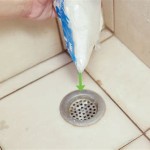Essential Aspects of Traditional Japanese Bathtubs
Ofuro, or traditional Japanese bathtubs, are a unique and integral part of Japanese culture. These deep, wooden tubs offer a relaxing and rejuvenating bathing experience that has been enjoyed for centuries. While modern bathtubs and showers are becoming more common in Japan, ofuro still hold a special place in the hearts of many Japanese people.
If you're looking to experience a truly authentic Japanese bathing experience, here are some essential aspects of traditional Japanese bathtubs that you should know about:
Materials and Construction
Traditional ofuro are made of wood, most commonly Japanese cypress or hinoki. The wood is naturally resistant to water and rot, making it ideal for use in bathrooms. Ofuro are also typically constructed with a wooden frame and a removable lid. The lid helps to keep the water hot and prevents evaporation.
Size and Shape
Ofuro are typically quite large, with a diameter of around 3 feet and a depth of around 2 feet. This size allows for a comfortable and full-body soak. The shape of an ofuro is also important. The traditional shape is a circle or oval, which allows for an even distribution of heat. Modern ofuro may also come in rectangular or square shapes.
Water Temperature
The water in an ofuro is typically heated to a very high temperature, around 110 degrees Fahrenheit. This hot water is believed to have several health benefits, including reducing stress, improving circulation, and relieving muscle pain. It is important to note that it is not advisable to stay in an ofuro for too long, as the hot water can be dangerous if you overheat.
Bathing Ritual
Taking a bath in an ofuro is a ritual in itself. Traditionally, Japanese people shower before entering the ofuro. This helps to remove any dirt or oils from the skin that could contaminate the water. Once in the ofuro, people typically sit down and relax, allowing the hot water to soothe their bodies. It is also common to add herbs or essential oils to the water for added relaxation.
Maintenance
Ofuro require regular maintenance to keep them clean and in good condition. After each use, the water should be drained and the tub should be rinsed with clean water. Periodically, the ofuro should also be scrubbed with a soft brush and a mild cleaning solution. It is important to avoid using harsh chemicals or detergents, as these can damage the wood.

Japanese Soaking Tubs Everything You Need To Know Spaflo

Ofuro Japan S Sustainable Bath

Guide To The Art Of Japanese Bathing Ofuro Soaking Outdoors Goodland

Traditional Japanese Wood Baths West Wind Hardwood

Japanese Soaking Tub Transform Your Bathroom Into A Health Spa

Experience The Tranquility Of A Traditional Japanese Round Bath

Japanese Soaking Tub Wood Outdoor Bathtub Tubs

Furo Wikipedia

Soluna Copper Japanese Soaking Tub Double Wall Barril De Vino Sinks

8 Hotels In Japan With Great Baths








